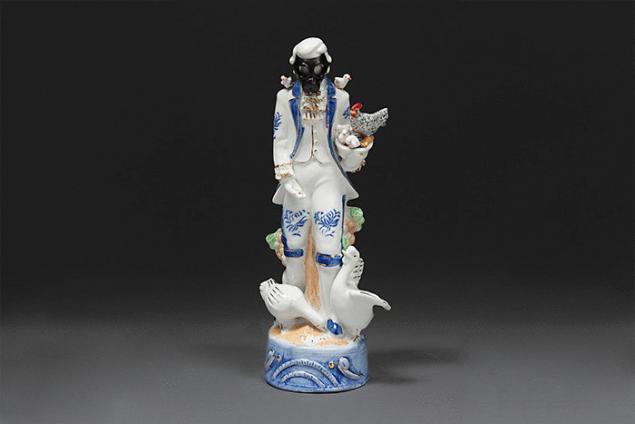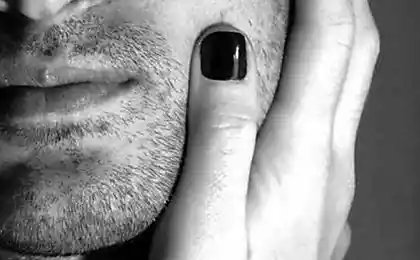714
The ugly truth: why beautiful always more opportunities
Sixty eight million two hundred eighty seven thousand two hundred forty eight
© Penny Byrne
We all know some attention is paid in our culture of appearance. Does this mean that the ugly are oppressed people everywhere, and whether you can get rid of socio-cultural attitudes evolved over the centuries? Lecturer at Princeton University, Jonny Thakkar talks on this topic in an article written for the journal Aeon.
Discrimination the many forms and faces, and most of them generated by injustice: the disparity between what we deserve and what we receive. Of course, it is very difficult to determine who deserves what, but in the modern world we think that merit is something that gets us on their own. For example, we can't control the color of our skin, so to treat someone badly because of skin color — it's harassment. This attitude will not necessarily be explicit: a society in which homosexuals are oppressed not produces such a depressing effect, as it is a society in which sexual minorities are generally outlawed — but it's still overwhelming. Very easy to harass due to sexuality and race, in the same way as gender and social status. But if oppress is to treat people not as they deserve, that is another kind of oppression, which is not so evident: it is the oppression of the ugly people.
We do not choose neither his facial features nor the color of their skin, but people tend to discriminate against each other because of appearance. As discovered by Komila Shahani-Denning, a psychologist and Professor of Hofstra University, in their study in 2003, attractive appearance favored in such diverse areas as evaluation of students by the teacher, the choice of a candidate for election, or the judge's decision. Attractiveness also plays a role in the selection of contenders for the job. Since childhood, from the moment the kid looks up at you, and you down to it, preference is given to ruthlessly beautiful. Ugly no one likes.
Aristotle explicitly says that we cannot be happy if our children are not happy, no one can be truly happy if he is ugly.By the way, the ancient Greeks had moral doubts about it. As noted by the Swiss cultural historian Jacob Burckhardt, beauty is not just crucial for the ancient Greeks, they are everywhere and openly expressed their admiration for its value. At some point in the "Iliad" of Homer appears commoner named Thersites, who challenges the authority of Agamemnon and lightning which upsets Odysseus, whose contempt for the upstart brand is uncompromising: "he was the Most ugly of all who came to Ilios". So, from the further description, we learn that for Homer, for the most part, "the ugly– is equal to "worst":
Husband unseemly he between the Danaev came to Ilios:
Was cross-eyed, lame; absolutely humped from behind
The shoulders on the paps converged; Chapter he was rising
Up the tip and was only occasionally dotted with fluff
Equating "ugly" to "worst" is not only a feature of the poetics of Homer. Very Greek adjective καλός for "beautiful" also means "noble", while άσχημος, that is, "ugly" also means "shameful", "disgraceful". If again to quote Burckhardt, in Ancient Greece, "the link between beauty and spiritual nobility was virtually indisputable".
The Greeks openly admired the beautiful people immortalised perfectly folded athletes in marble and hung beautiful boys and the demigods. But do not forget that a society that praises beauty, at the same time detract from all that is ugly. BURKHARDT cites the tale of a single Spartan girl, later wife of the king of Demarta that was so ugly that her every day drove to the temple of Helen to cure her illness.
Our society is afraid of ugliness is no less Greek, though now more confidence in the surgical intervention, not divine. Parents still want their children to be beautiful, reserving the liposuction, implants, and rhinoplasty for a more Mature, but the braces are put as early as possible. That is because crooked teeth are ugly smile, an ugly smile can be too costly in the future. Of course, adults will say it's for health, not for attractiveness, but the child who is forced to wear braces, well aware of the real reason. Braces have become a modern alternative to Chinese foot binding.
The Greeks would not have to hide the truth about the braces. Aristotle explicitly says that we cannot be happy if our children are not happy, no one can be truly happy if he is ugly. It logically follow two things: what we want to see our children are beautiful, and that people who do not possess beauty, more likely to be unhappy. We still adhere to this opinion, although not until the end confess, myself.
Why is everyone so excited about the wave of obesity? It is obvious that excess weight is dangerous for health, but let's be honest — and I hope I don't shock you now baseness of his nature — but this whole campaign against fat deposits rests not so much on concerns about the health of fat how many in disgust. When we — or just I — meet irrepressible plump, in us arises a sense of horror and even anger at him. Seems to be just wrong. It is very difficult to admit such and not to look immoral, so I will go to "Twilight of the gods" (1889), Friedrich Nietzsche, who was free from such complexes:"If to confide physiology, all the ugliness weakens and saddens man. It reminds him of the death, danger, powerlessness... When a person is generally depressed, he senses the proximity of something "ugly". His sense of power, his will to power, his courage, his pride — all of this belittled along with ugly and grows with beautiful... Ugly is understood as an allusion to the degeneration and symptom: that even in the remotest way, reminiscent of the degeneration, it causes in us the judgment of "ugly". Every symptom of exhaustion, of heaviness, of age... first of all the smell, color, shape decomposition, all provoke the same reaction, all this "ugly". Hatred breaks out here — who hates this man? But there is no doubt: the decline of his type."
In other words, Nietzsche would say that we don't like to see obese because they are ugly — and therefore remind us about the decline of our race. Nietzsche was more interested in not the nation as a whole, and its separate individuals. At the time, how the beautiful people incline us to the deification of the human race and reconciliation with him, ugly drain our spirits and plunge into depression about the future of the human race. You think this is too much? Possible. But remember the cartoon "wall-e"g (2008), in which the people of the future more like a bloated pork with puffy chins, confined to a wheelchair and unable to stand up without outside mechanical assistance. Is it really such a nightmare does not affect the perception of obesity?
"There is something sad in the malignant nature of our world": the philosopher Umberto Eco about the history rodstvennica, we don't want it to be so. On the one hand, there is something proto-Nazi. On the other, it's just petty and angry, and we are ashamed to be petty and spiteful. To judge a book by its cover rather superficially. And to be superficial means to be ugly in a different, internal level.
Nietzsche attributes this changing concept of beauty from external to internal with the revolution made ugly by the thinkers of the past: the priests and the philosophers, to which he treated Socrates. He denied the Greek the connection between physical beauty as a necessary component for happiness. On the contrary, he believed that mind will bring virtue, and virtue will bring happiness.
As you know, Socrates was not handsome, but he was able to build the idea to a level of beauty that a young man hopelessly in love with him, cursing his spiritual deformity and begging him for attention. Nietzsche was this a cynical explanation: “With dialectics the rabble turns up.” It is difficult to come up with a better answer to the society in which beauty is perceived as a reflection of nobility, than to redefine the notion of beauty as a quality which is peculiar only to intellectuals and thinkers.
Permutation made by Socrates, and really puts intellectuals (artists or priests) in a privileged position. By modern standards, it still seems adamant and evaluation. We want to continue to move in a revolutionary direction. We all want to deny someone's ugliness. Either we are all beautiful on the inside, or physical beauty as a whole is too relative, so who can judge? In any case, it is remarkable how difficult it is to get someone to admit that this or that person ugly. After some time, our appearance does reflect accepted once the solution (as noted by George Orwell: "at age 50 you have the face that deserve it", making the section of physical beauty from the rest of the difficult. And yet.
Does this mean that in our culture, not harass ugly/ugly like in Ancient Greece? The truth is that we don't want to show himself as a limited and brutal, but it does not mean that we are not. To cover up this unpleasant fact, we pretend that the ugliness does not exist, thus creating a new level of oppression. In a sense, the situation for the ugly is formed the same as for blacks in so-called “post-racial” society: of the category, which is suppressed, if it were not there.

For ugly the situation is even more sad because no one takes seriously ugly as a separate category for harassment. The troubles that occur on racial grounds, of course, can't even compare to those caused by plainness, but that does not make them less real. You can think about them from the point of view of opportunities and chances which has each of us with the desire to dream. Let's say you want to be an astronaut, an acrobat or an actor. One desire is not enough: a lot depends on your talents and abilities.
The less talent we have, the less our chances of success, and attractive appearance, of course, is one of the talents. It is important for career growth, which, studies show, starts at school. Don't need to be a genius to notice that for any human relationship she is also important. The beautiful are always more opportunities. The problem of choice is, of course, also a problem and is beautiful, it occurs much more often. For example, people with an attractive appearance are more likely to commit adultery, just because the opportunity they are constantly available. But still, all of us would like to have more chances in life, lotteries, and ugly people, in the end, they are smaller.
Maybe it's not depression, but just bad luck? In the end, there is no law that would send ugly on the margins of history? You can of course get upset or angry from the fact that the fastest runners, and best of all acrobats with balance, but it's hardly harassment: in some cases, the award really goes to those who deserve it. At the same time, to be a good web designer, not necessarily to have an attractive appearance, so when hiring this factor should not be included. Such a law, of course, it would be difficult to accept, and not only because the final decision when applying for a job is not always logically explainable.
In real life there are many professions where appearance helps a lot. Not only the obvious film industry, model, or restaurant business, but also sales, management and even teaching: while customers, employees, or students remain receptive to appearance, ugly people will be more difficult to position the audience to itself.
The troubles that occur on racial grounds, of course, can't even compare to those caused by plainness, but that does not make them less real.This shows that ugly harassment is not based on any laws or decisions, and occurs at a subconscious level in our daily interactions. Ugly people deserve the same as everyone else: to have their words listened to, their gestures noticed, and looked straight into their eyes. But they get not quite this, and not their fault.
As you probably already heard, life's unfair. Hardly discrediting ugly on purpose. How annoying would it sounds, but the attitude of the ancient Greeks just passed on to us. Sometimes we notice that external beauty does not always mean internal, but our first impression will always be positive: think he's a good guy. We already like the look in his beautiful eyes, listen to the words from a beautiful mouth, I want to stay close to longer. But for some beautiful people, especially women, the magnetism can work in two directions: appearance pulls all the attention, and the words fly past. The same kind of bad luck.
The problem is that we formed the creatures with already existing installations. To imagine that we can completely get rid of our natural inheritance that we will receive what we are owed, or at least to be who they deserve to be, is an illusion — the illusion that the Greeks, with their idea of Fate and destiny, never had any. But our imagination, as facial traits, we are not always obeyed. But that does not mean that we do not try to make them better.
Source: theoryandpractice.ru
© Penny Byrne
We all know some attention is paid in our culture of appearance. Does this mean that the ugly are oppressed people everywhere, and whether you can get rid of socio-cultural attitudes evolved over the centuries? Lecturer at Princeton University, Jonny Thakkar talks on this topic in an article written for the journal Aeon.
Discrimination the many forms and faces, and most of them generated by injustice: the disparity between what we deserve and what we receive. Of course, it is very difficult to determine who deserves what, but in the modern world we think that merit is something that gets us on their own. For example, we can't control the color of our skin, so to treat someone badly because of skin color — it's harassment. This attitude will not necessarily be explicit: a society in which homosexuals are oppressed not produces such a depressing effect, as it is a society in which sexual minorities are generally outlawed — but it's still overwhelming. Very easy to harass due to sexuality and race, in the same way as gender and social status. But if oppress is to treat people not as they deserve, that is another kind of oppression, which is not so evident: it is the oppression of the ugly people.
We do not choose neither his facial features nor the color of their skin, but people tend to discriminate against each other because of appearance. As discovered by Komila Shahani-Denning, a psychologist and Professor of Hofstra University, in their study in 2003, attractive appearance favored in such diverse areas as evaluation of students by the teacher, the choice of a candidate for election, or the judge's decision. Attractiveness also plays a role in the selection of contenders for the job. Since childhood, from the moment the kid looks up at you, and you down to it, preference is given to ruthlessly beautiful. Ugly no one likes.
Aristotle explicitly says that we cannot be happy if our children are not happy, no one can be truly happy if he is ugly.By the way, the ancient Greeks had moral doubts about it. As noted by the Swiss cultural historian Jacob Burckhardt, beauty is not just crucial for the ancient Greeks, they are everywhere and openly expressed their admiration for its value. At some point in the "Iliad" of Homer appears commoner named Thersites, who challenges the authority of Agamemnon and lightning which upsets Odysseus, whose contempt for the upstart brand is uncompromising: "he was the Most ugly of all who came to Ilios". So, from the further description, we learn that for Homer, for the most part, "the ugly– is equal to "worst":
Husband unseemly he between the Danaev came to Ilios:
Was cross-eyed, lame; absolutely humped from behind
The shoulders on the paps converged; Chapter he was rising
Up the tip and was only occasionally dotted with fluff
Equating "ugly" to "worst" is not only a feature of the poetics of Homer. Very Greek adjective καλός for "beautiful" also means "noble", while άσχημος, that is, "ugly" also means "shameful", "disgraceful". If again to quote Burckhardt, in Ancient Greece, "the link between beauty and spiritual nobility was virtually indisputable".
The Greeks openly admired the beautiful people immortalised perfectly folded athletes in marble and hung beautiful boys and the demigods. But do not forget that a society that praises beauty, at the same time detract from all that is ugly. BURKHARDT cites the tale of a single Spartan girl, later wife of the king of Demarta that was so ugly that her every day drove to the temple of Helen to cure her illness.
Our society is afraid of ugliness is no less Greek, though now more confidence in the surgical intervention, not divine. Parents still want their children to be beautiful, reserving the liposuction, implants, and rhinoplasty for a more Mature, but the braces are put as early as possible. That is because crooked teeth are ugly smile, an ugly smile can be too costly in the future. Of course, adults will say it's for health, not for attractiveness, but the child who is forced to wear braces, well aware of the real reason. Braces have become a modern alternative to Chinese foot binding.
The Greeks would not have to hide the truth about the braces. Aristotle explicitly says that we cannot be happy if our children are not happy, no one can be truly happy if he is ugly. It logically follow two things: what we want to see our children are beautiful, and that people who do not possess beauty, more likely to be unhappy. We still adhere to this opinion, although not until the end confess, myself.
Why is everyone so excited about the wave of obesity? It is obvious that excess weight is dangerous for health, but let's be honest — and I hope I don't shock you now baseness of his nature — but this whole campaign against fat deposits rests not so much on concerns about the health of fat how many in disgust. When we — or just I — meet irrepressible plump, in us arises a sense of horror and even anger at him. Seems to be just wrong. It is very difficult to admit such and not to look immoral, so I will go to "Twilight of the gods" (1889), Friedrich Nietzsche, who was free from such complexes:"If to confide physiology, all the ugliness weakens and saddens man. It reminds him of the death, danger, powerlessness... When a person is generally depressed, he senses the proximity of something "ugly". His sense of power, his will to power, his courage, his pride — all of this belittled along with ugly and grows with beautiful... Ugly is understood as an allusion to the degeneration and symptom: that even in the remotest way, reminiscent of the degeneration, it causes in us the judgment of "ugly". Every symptom of exhaustion, of heaviness, of age... first of all the smell, color, shape decomposition, all provoke the same reaction, all this "ugly". Hatred breaks out here — who hates this man? But there is no doubt: the decline of his type."
In other words, Nietzsche would say that we don't like to see obese because they are ugly — and therefore remind us about the decline of our race. Nietzsche was more interested in not the nation as a whole, and its separate individuals. At the time, how the beautiful people incline us to the deification of the human race and reconciliation with him, ugly drain our spirits and plunge into depression about the future of the human race. You think this is too much? Possible. But remember the cartoon "wall-e"g (2008), in which the people of the future more like a bloated pork with puffy chins, confined to a wheelchair and unable to stand up without outside mechanical assistance. Is it really such a nightmare does not affect the perception of obesity?
"There is something sad in the malignant nature of our world": the philosopher Umberto Eco about the history rodstvennica, we don't want it to be so. On the one hand, there is something proto-Nazi. On the other, it's just petty and angry, and we are ashamed to be petty and spiteful. To judge a book by its cover rather superficially. And to be superficial means to be ugly in a different, internal level.
Nietzsche attributes this changing concept of beauty from external to internal with the revolution made ugly by the thinkers of the past: the priests and the philosophers, to which he treated Socrates. He denied the Greek the connection between physical beauty as a necessary component for happiness. On the contrary, he believed that mind will bring virtue, and virtue will bring happiness.
As you know, Socrates was not handsome, but he was able to build the idea to a level of beauty that a young man hopelessly in love with him, cursing his spiritual deformity and begging him for attention. Nietzsche was this a cynical explanation: “With dialectics the rabble turns up.” It is difficult to come up with a better answer to the society in which beauty is perceived as a reflection of nobility, than to redefine the notion of beauty as a quality which is peculiar only to intellectuals and thinkers.
Permutation made by Socrates, and really puts intellectuals (artists or priests) in a privileged position. By modern standards, it still seems adamant and evaluation. We want to continue to move in a revolutionary direction. We all want to deny someone's ugliness. Either we are all beautiful on the inside, or physical beauty as a whole is too relative, so who can judge? In any case, it is remarkable how difficult it is to get someone to admit that this or that person ugly. After some time, our appearance does reflect accepted once the solution (as noted by George Orwell: "at age 50 you have the face that deserve it", making the section of physical beauty from the rest of the difficult. And yet.
Does this mean that in our culture, not harass ugly/ugly like in Ancient Greece? The truth is that we don't want to show himself as a limited and brutal, but it does not mean that we are not. To cover up this unpleasant fact, we pretend that the ugliness does not exist, thus creating a new level of oppression. In a sense, the situation for the ugly is formed the same as for blacks in so-called “post-racial” society: of the category, which is suppressed, if it were not there.

For ugly the situation is even more sad because no one takes seriously ugly as a separate category for harassment. The troubles that occur on racial grounds, of course, can't even compare to those caused by plainness, but that does not make them less real. You can think about them from the point of view of opportunities and chances which has each of us with the desire to dream. Let's say you want to be an astronaut, an acrobat or an actor. One desire is not enough: a lot depends on your talents and abilities.
The less talent we have, the less our chances of success, and attractive appearance, of course, is one of the talents. It is important for career growth, which, studies show, starts at school. Don't need to be a genius to notice that for any human relationship she is also important. The beautiful are always more opportunities. The problem of choice is, of course, also a problem and is beautiful, it occurs much more often. For example, people with an attractive appearance are more likely to commit adultery, just because the opportunity they are constantly available. But still, all of us would like to have more chances in life, lotteries, and ugly people, in the end, they are smaller.
Maybe it's not depression, but just bad luck? In the end, there is no law that would send ugly on the margins of history? You can of course get upset or angry from the fact that the fastest runners, and best of all acrobats with balance, but it's hardly harassment: in some cases, the award really goes to those who deserve it. At the same time, to be a good web designer, not necessarily to have an attractive appearance, so when hiring this factor should not be included. Such a law, of course, it would be difficult to accept, and not only because the final decision when applying for a job is not always logically explainable.
In real life there are many professions where appearance helps a lot. Not only the obvious film industry, model, or restaurant business, but also sales, management and even teaching: while customers, employees, or students remain receptive to appearance, ugly people will be more difficult to position the audience to itself.
The troubles that occur on racial grounds, of course, can't even compare to those caused by plainness, but that does not make them less real.This shows that ugly harassment is not based on any laws or decisions, and occurs at a subconscious level in our daily interactions. Ugly people deserve the same as everyone else: to have their words listened to, their gestures noticed, and looked straight into their eyes. But they get not quite this, and not their fault.
As you probably already heard, life's unfair. Hardly discrediting ugly on purpose. How annoying would it sounds, but the attitude of the ancient Greeks just passed on to us. Sometimes we notice that external beauty does not always mean internal, but our first impression will always be positive: think he's a good guy. We already like the look in his beautiful eyes, listen to the words from a beautiful mouth, I want to stay close to longer. But for some beautiful people, especially women, the magnetism can work in two directions: appearance pulls all the attention, and the words fly past. The same kind of bad luck.
The problem is that we formed the creatures with already existing installations. To imagine that we can completely get rid of our natural inheritance that we will receive what we are owed, or at least to be who they deserve to be, is an illusion — the illusion that the Greeks, with their idea of Fate and destiny, never had any. But our imagination, as facial traits, we are not always obeyed. But that does not mean that we do not try to make them better.
Source: theoryandpractice.ru























